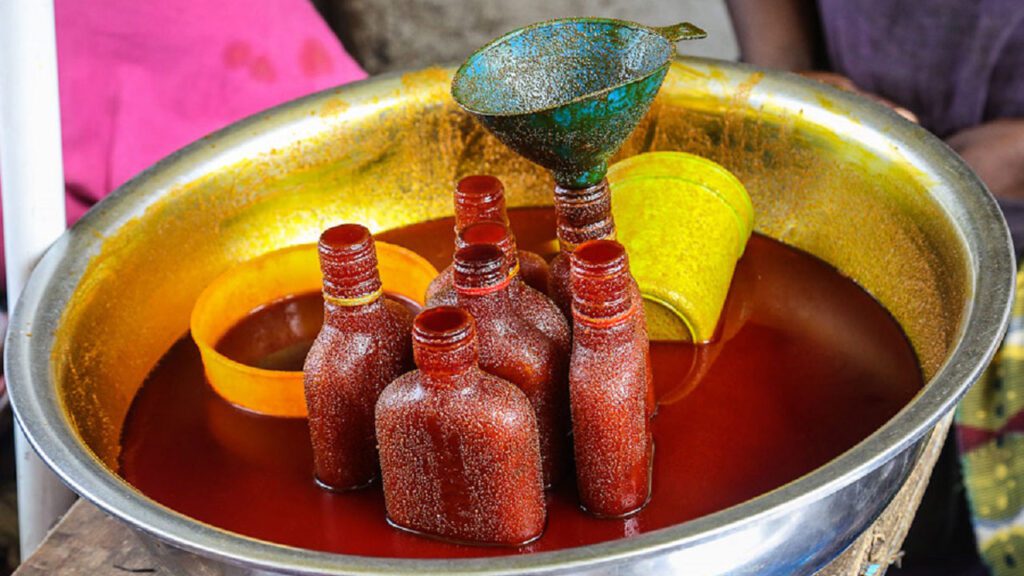The immediate past President of the National Palm Oil Produce Association of Nigeria (NPPAN), Mr. Henry Olatujoye, and other experts have raised concerns over the circulation of adulterated palm oil, noting that at least 60 per cent of the palm oil in markets across the country is adulterated. According to them, the diluted oil, when deposited in the human body, has the capacity to cause cancer and other critical health issues that may eventually lead to terminal diseases or untimely death. Their findings showed that the heinous act is as a result of the increasing cost of the produce, to the extent that several households across the country currently cannot afford it.
According to reports, adulterated oil comes at cheaper prices in most produce markets. It was gathered that the culprits have taken to diluting original palm oil with substances to maximise profits, at the expense of the health of unsuspecting buyers. FarmingFarmersFarms gathered that colouring agents are mixed with water and added to original palm oil tin order to increase its redness by creating the impression that it is better in quality than the original oil in the market. It was further gathered that the demand for the ‘deadly oil’ is increasing due to its rich colour, attractiveness and lower prices, as buyers prefer it to the original oil.
Olatujoye alleged that adulteration of palm oil exists all over Nigeria. “They have even gone beyond mixing magenta – a deep red-like dye with the palm oil to improve its colouration. People have now improved by mixing chemicals and pouring it into the palm oil to look more oily. There are some levels of adulteration whereby people mix sludge – an industrial oil used in making soap. It’s not made for consumption, but people still mix it and blend it with palm oil to increase their volume. So, if you don’t know, you’ll just buy it and start to eat. So, the level of its adoption and usage currently is very high.
“You know, in every business environment, there is always the dark side of it. The only thing we can do is to create more awareness among consumers and do more training for people to understand that when looking for high-grade palm oil, these are the parameters. Firstly, one of the parameters is to look at the bottle, if it’s a pet bottle, once you shake it very well and allow it to settle, if it’s a good palm oil, it will have a free flow down without stains of residue on the body, but if it’s fake, you’ll see some patches on the bottle, showing that it’s actually a bad palm oil. So, we need to increase awareness, training and retraining of people and then get more information across to consumers for them to understand how to discover fake and good palm oil”, he stated further.
He, however, attributed the development to supply deficit, which was aggravated by population explosion, as well as an increase in industrial utilisation. “Palm oil has always been higher in price when compared to petroleum products; this is because of population, which leads to increase in industrial utilisation and consumption. Looking at the Ukraine-Russian war and the Coronavirus disease (COVID-19) pandemic era, which distorted the supply chain of so many commodities and dropped the value of naira to dollar, it is clear why we have price increases. What we are enjoying today is home advantage, which is not sustainable”, he said.



